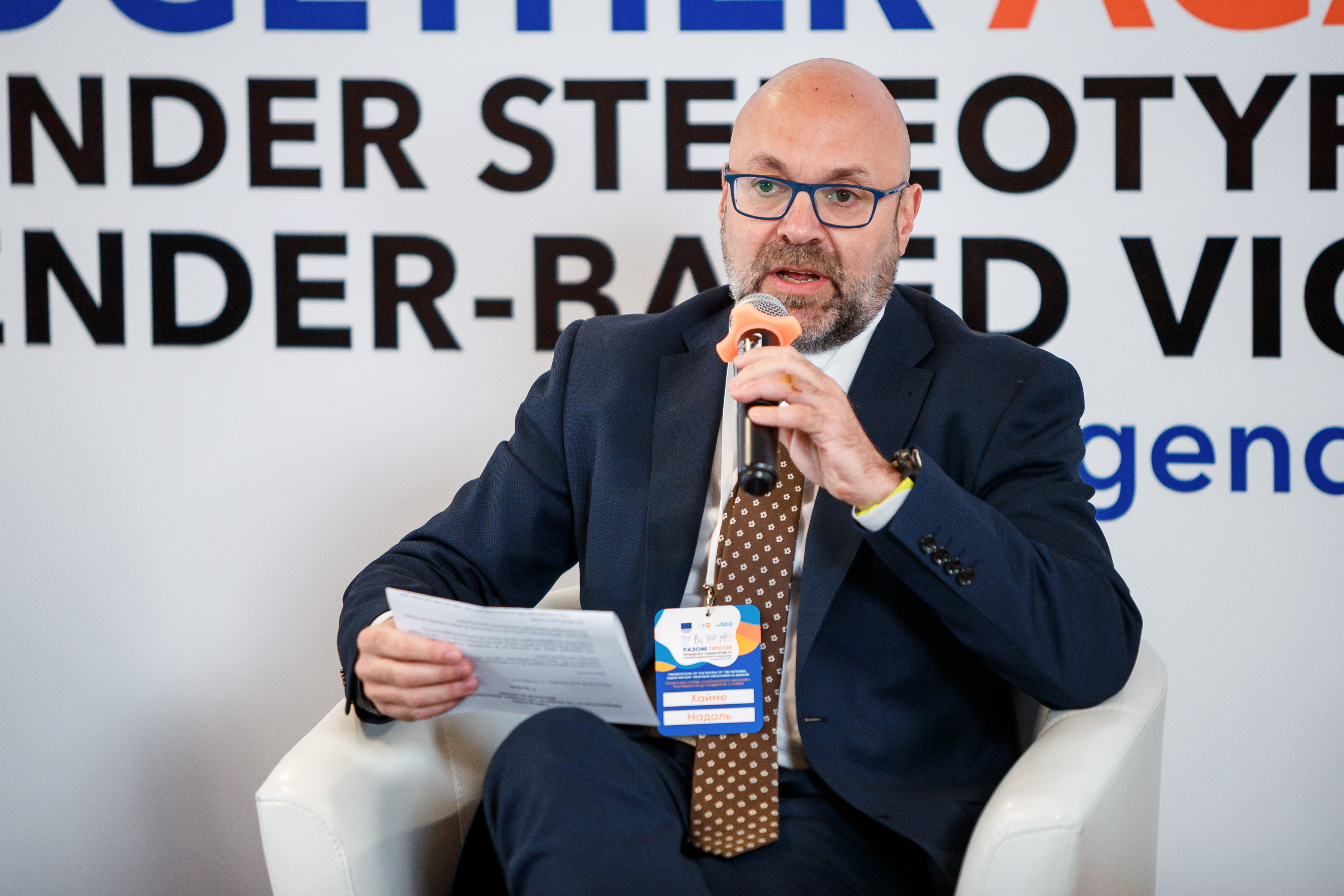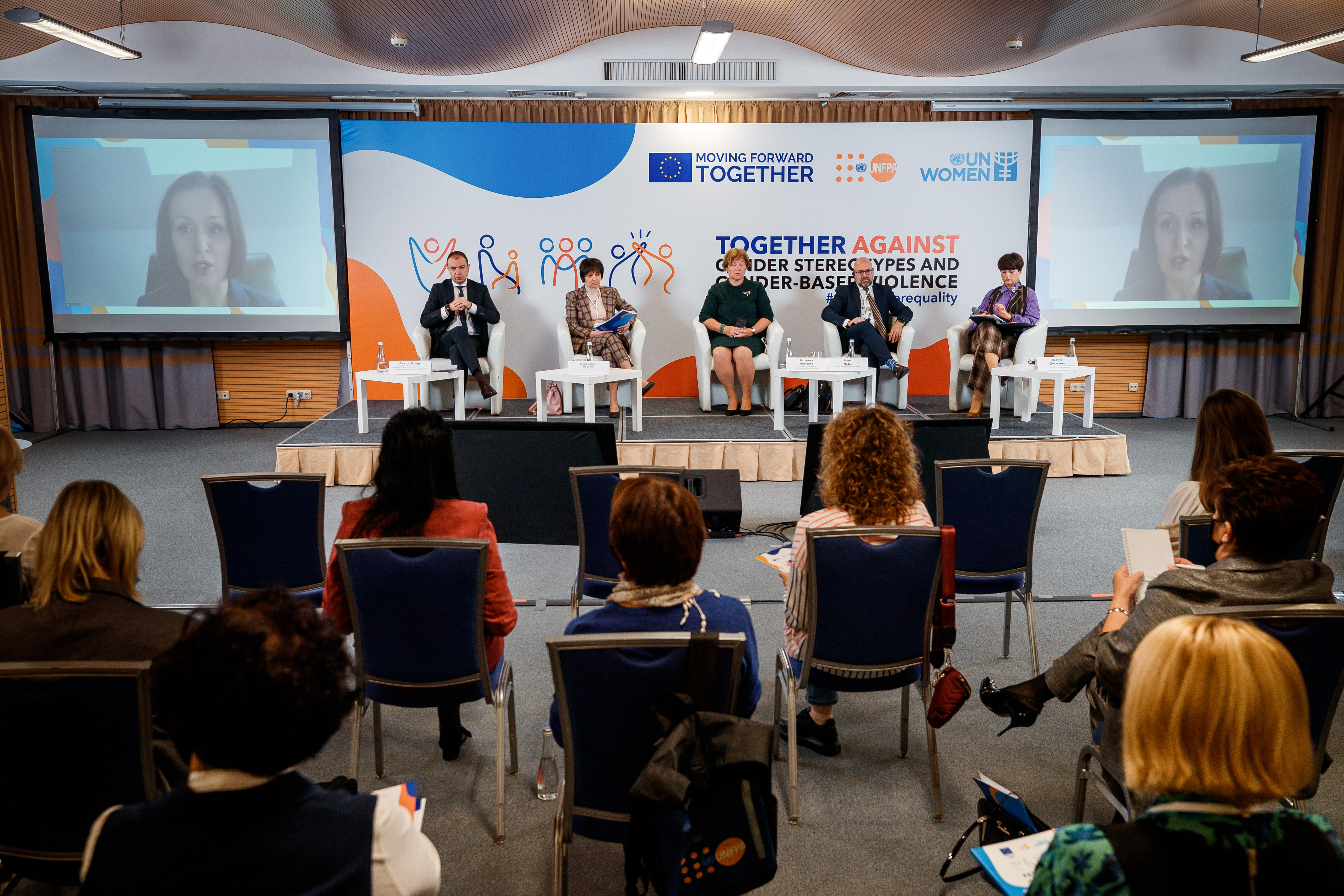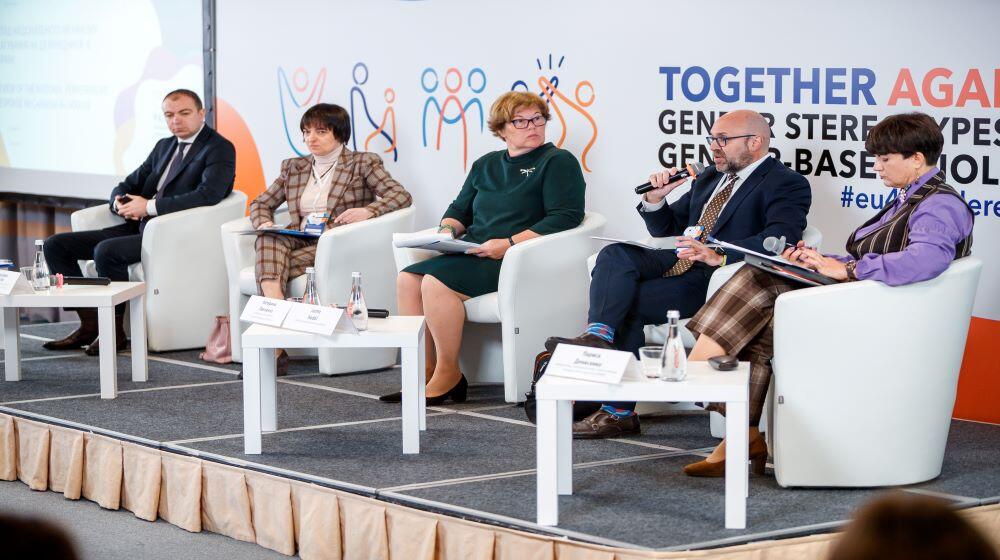Kyiv, 5 October 2021—International and local experts gathered to discuss how to prevent domestic violence, and rehabilitate perpetrators, by improving Ukraine’s response mechanism. While domestic violence is criminalized in Ukraine, working with perpetrators to prevent further violence requires trained staff and resources and a system approach. These needs were discussed during the review session.

“Since 2015, UNFPA has been working with the Government of Ukraine to develop and enhance the Gender-Based Violence (GBV) prevention and response systems. Our ultimate goal is twofold: First, to ensure that GBV survivors know about their rights and seek and access good quality, survivor-centered, services and; second, to promote a zero-tolerance approach to GBV in society. We are certain that with Ukraine joining the Biarritz partnership, counteracting Gender-Based and Domestic Violence in the country will be further prioritized” said Jaime Nadal, UNFPA Representative in Ukraine.
Representatives from Ukraine’s Parliament, Cabinet of Ministers, National Police and other groups participated as Ukraine’s compliance with international standards (primarily of the Council of Europe) were reviewed. International experts shared the experience of working with perpetrators in Spain, Israel, UK and the USA. Alessandra Pauncz, Executive Director of the European Network for the Work with Perpetrators of Domestic Violence, also presented European guidelines and practical experience on working with perpetrators during the COVID-19 crisis.
According to a UNFPA-led national masculinity survey in Ukraine (2019), a considerable share of perpetrators do not see their violent behavior as a crime. They rather perceive it as “normal” and blame the victim for provoking their violent or abusive behavior and avoid taking responsibility. According to the survey, 13% of men acknowledged perpetrating physical violence against their partners, 32% of the surveyed men reported having male friends who perpetrated physical violence against their wives or partners, and 10% of men agreed that a woman should tolerate violence to preserve her family. In 2020, only 414 persons were referred to Ukraine’s programme for perpetrators, whereas more than 80 thousand persons were registered for committing acts of domestic or gender-based violence.
“It is crucial not only to hold perpetrators accountable for their violence but also instigate them to accept responsibility for their abuse. Perpetrators’ programmes are vital to break cultural acceptance of violence towards women,” noted Tetiana Shulha, Gender Focal Point at the European Union Delegation to Ukraine.

«Levels of domestic violence have reached an epidemic dimension in many countries even before the COVID-19. The pandemic has worsened the situation everywhere. To prevent the reoccurrence of this crime, the work with perpetrators is critical. Good practices from successful programs should be shared, learned, adapted, and applied as appropriate” – added Erika Kvapilova, UN Women Ukraine Representative.
The meeting brought together international, national, and local organizations including Parliament, the Office of the Deputy Prime Minister on European and Euro-Atlantic Integration, Ministry of Social Policy, Ministry of Internal Affairs, National Police, Prosecutor’s office, judiciary, regional and local authorities, UNFPA, UN Women, EU Delegation, the Council of Europe and OSCE.

Background
This international independent review was conducted at the request of UNFPA Ukraine within the framework of the “EU 4 Gender Equality: Together against gender stereotypes and gender-based violence” programme, funded by the European Union, implemented jointly by UN Women and UNFPA.
“EU 4 Gender Equality” is a three-year regional programme to tackle gender stereotypes and gender-based violence in six countries of the Eastern Partnership: Armenia, Azerbaijan, Belarus, Georgia, Moldova, and Ukraine.


